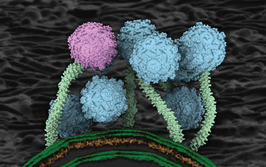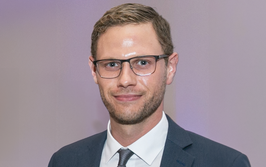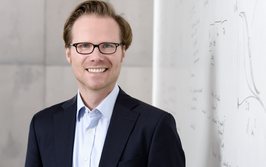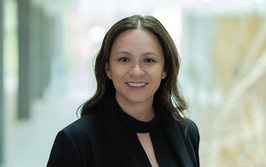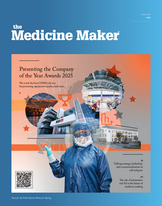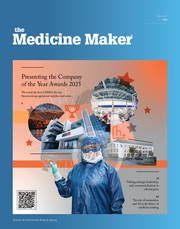The Adaptable Harbinger
Sitting Down With... Sauri Gudlavalleti, Global Head of Integrated Product Development Organization (IPDO), Dr. Reddy’s Laboratories

This article is part of our special focus on "traditional" pharma: The Small Molecule Manufacturer (read more here). You can find more articles from The Small Manufacturer here.
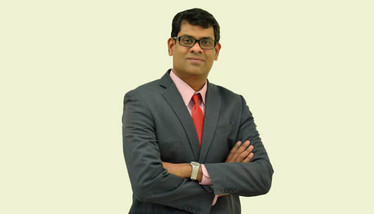
Sauri Gudlavalleti, Global Head of Integrated Product Development Organization (IPDO), Dr. Reddy’s Laboratories
Why did you pursue a career in science?
From an early age, I knew I wanted a career in the sciences. My father was a nuclear scientist and we lived in a community full of scientifically-driven minds; our town in South India was adjacent to a major nuclear plant and R&D center. It was a place where professionals were solving problems in physics and chemistry – two subjects I had a keen interest in. I wanted to have the chance to do something meaningful with my professional life and I always felt that a career in science would help me achieve that.
How did you get involved in pharma?
I spent many years in my early career as a product development scientist in different engineering companies, working in a variety of areas including energy equipment, hydrogen production, and even mobile phone screens. I later moved into management consulting to help companies improve their R&D processes. Interacting with sectors as varied as oil and gas and farming equipment presented unique and interesting challenges, but I was drawn to the generic pharma industry. It was a complex area, but there seemed to be so many opportunities for improvement. And it felt like an industry that was meant for me because you really can have a meaningful and lasting impact.
What were the challenges of transitioning into the industry?
Generic pharma is one of the few industries that is truly cross-functional from end-to-end. On a daily basis, individuals are developing solutions that address everything from technology to patient health to intellectual property and government regulation. These factors, combined with the global footprint and multi-year product lifecycles, necessitate very robust systems and processes in everything we do.
When I first entered the industry, I found that I was able to bring my past experiences from outside of pharma to bear. Management consulting had taught me how best to deal with people; it gave me an understanding of their motivations and how different approaches can be used to get the best out of them. It became important for me to apply this knowledge to pharma R&D to help manage the scientific talent around me. I was also familiar with the use of Six Sigma for product development and bug tracking to minimize dossier deficiencies. I knew that by introducing these concepts to my colleagues, we would all stand to gain.
What experience had the greatest impact on your career trajectory?
In 2008, I decided to return to India from the US to pursue an MBA. It was a massive step as I had chosen to move from a predictable and stable job in Silicon Valley to India, where advanced technologies were just beginning to grow and flourish. It was truly an adventure! And, ultimately, it helped me handle even more professional challenges with an open mind and a versatile approach.
And your career highlights?
In 2004, as a bench scientist, I was part of a GE team that built a Solid Oxide Fuel Cell prototype. These electrochemical devices are able to produce electricity by directly oxidizing fuel. I was proud of the fact that our project broke the world record on certain performance dimensions! The goal appeared impossible when we started out, but we overcame multiple design, manufacturing and experimental challenges over the course of a year to achieve this milestone.
As a business consultant, I led a team that turned around an auto component company with declining profits. Over 15 months, we re-energized the leadership and worked together to double the company’s profitability and turn around several underperforming factories.
And now at Dr Reddy’s, I am part of a very exciting large-scale R&D transformation, which aims to double our global dossier submissions, crack complex technologies, and significantly reduce the cost of our products. We are doing this by implementing streamlined processes and governance, engaging the workforce, and adopting advanced experimental and modeling techniques across R&D. The most exciting part of it all is the digital transformation we have embarked on. Every process, every experiment, and every document we now create is fully digitized.
Has mentorship played an important role?
I am fortunate to have had several mentors throughout my career. Some have helped open doors for me, while some have helped me see and learn new dimensions in whatever I did. There are others who were not formal mentors but rather leaders from whom I learned by observing. What I have gained from all my mentors is a variety of tools and approaches to solve problems. Whenever faced with a challenging situation, I run through examples of how the best leaders around me have dealt with similar situations – and this helps me find the best way forward.
What advice would you give science and engineering graduates who are considering leadership?
Always be in touch with what is happening “on-the-ground” in any field you decide to work in. It is all too easy to get lost among computer simulations, spreadsheets, and slideshows. Even in a business leadership position, a scientist or an engineer is best placed for leadership because of their ability to connect with the actual operations of the business.
After finishing my degree, I envisioned a career in science communications. However, life took an unexpected turn and I ended up teaching abroad. Though the experience was amazing and I learned a great deal from it, I jumped at the opportunity to work for Texere. I'm excited to see where this new journey takes me!

